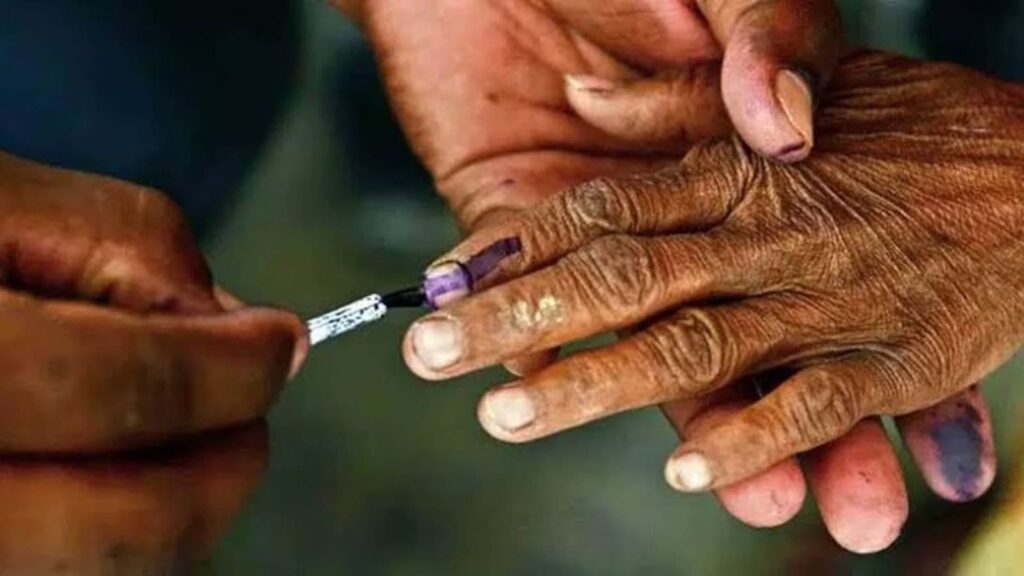970x125
Kolkata, New DelhiAug 14, 2025 07:12 IST
First published on: Aug 14, 2025 at 07:10 IST
The standoff between the Election Commission (EC) and the West Bengal government showed no signs of relenting Tuesday, as the poll watchdog, after a meeting in Delhi, gave Chief Secretary Manoj Pant seven days to act on its order to suspend four officers, remove a data entry operator and file FIRs — steps Pant is learnt to have said he would take only after consulting the state government.
The five Bengal officials are accused of registering fake voters. Pant, who was summoned to the Capital for not complying with the EC’s order last week to act against them, is learnt to have met all three Election Commissioners — panel chief Gyanesh Kumar, and members Vivek Joshi and Sukhbir Singh Sandhu.
At the over hour-long meeting at the poll panel’s headquarters, he is learnt to have said that inquiries had been initiated against the officers and that action would follow based on the findings.
When the EC pressed for compliance, Pant is learnt to have cited forthcoming holidays, prompting the commission to give him a seven-day deadline. He is also learnt to have told the EC that he could not take the decision alone and would first consult the state government.
The meeting came days after Chief Minister Mamata Banerjee publicly vowed to protect state government employees. “The state government employees are being intimidated. The officers were served suspension notices yesterday. Have the elections even been announced yet? Which law allows them to be suspended at this stage? It is our responsibility to protect you all. We will do that. We will not suspend them… I will continue to be your pehredar (guard),” she said at a public meeting in Jhargram last week.
On Monday, Pant had written to the EC, calling the suspension and FIRs “disproportionately harsh” with a “demoralising impact” on Bengal’s officers’ community — remarks that led to the summons to Delhi.
This tug-of-war also has a legal history. The EC derives its authority from Section 13CC of the Representation of the People Act, 1950, inserted in 1989, which deems officers on election duty to be on deputation to the commission and subject to its “control, superintendence and discipline”.
Referring to Chief Electoral Officers, District Election Officers and Electoral Registration Officers, etc, Section 13CC says: “The officers referred to in this Part and any other officer or staff employed in connection with the preparation, revision and correction of the electoral rolls for, and the conduct of, all elections shall be deemed to be on deputation to the Election Commission for the period during which they are so employed and such officers and staff shall, during that period, be subject to the control, superintendence and discipline of the Election Commission.”
The scope of the word “discipline” led to a dispute, with then Chief Election Commissioner T N Seshan moving the Supreme Court in 1993. While the EC argued it could take disciplinary action for any dereliction of duty, the Centre and states maintained it could only recommend such action.
The matter was resolved by the court’s order in 2000, in which the EC and the government agreed to terms of settlement. The terms of settlement were that the EC’s disciplinary functions would extend to suspension for insubordination or dereliction of duty; substituting and returning the substituted individual to the cadre; recommending disciplinary action to competent authority for insubordination or dereliction of duty while on election duty; and that the Union government would advise state government of the decisions. On the recommendations, the terms of settlement said that they should be “promptly acted upon”.
Despite this, it hasn’t been all smooth between the EC and the governments. The Department of Personnel and Training issued an office memorandum on March 20, 2008, reiterating the terms of settlement. The EC had “observed that the governments in many cases do not initiate proceedings promptly against government servants on the Commission’s recommendations,” the DoPT said.
Reiterating its instructions after the 2000 Supreme Court judgment, the DoPT had said: “…it is emphasized that the terms of settlement have to be complied with while adhering to the provisions of the relevant disciplinary rules. The recommendations of the Election Commission made to the Competent Authority for taking disciplinary action for any act of insubordination or dereliction of duty while on duty shall be promptly acted upon by the disciplinary authority and action taken should be communicated to the Election Commission within a period of six months from the date of the Election Commission’s recommendations.”
970x125





